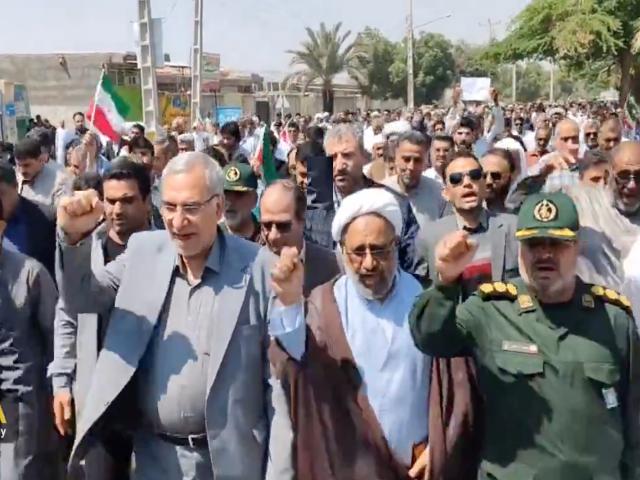On the eve of the last Friday of Ramadan, a period marked by heightened alertness in Israel, concerns over a potential Iranian offensive have escalated significantly. This period coincides with Quds Day, a day of solidarity with Palestinians, designated by Tehran. Reports from Axios indicate that Israel has intercepted intelligence suggesting Iran might launch attacks from its territory, employing long-range ballistic missiles, cruise missiles, or drones. These developments were further underscored during a conversation between the defense ministers of Israel and the United States.
Prime Minister Benjamin Netanyahu, in a cabinet meeting on Thursday, issued a stern warning to Iran, emphasizing Israel's resolve to counter any threats. "For years, Iran has been acting against us, both directly and through its proxies," Netanyahu stated. "Israel is responding to these threats, both defensively and offensively."
Today is International Quds Day. It's an annual pro-Palestinian event held on the last Friday of Ramadan in support of Palestinians
— Hamas Atrocities (@HamasAtrocities) April 5, 2024
Today's front page of Tehran Times. The "storm" is a reference to "Al Quds Flood" (Hamas' name for October 7th)
Iran, once again, calling openly… pic.twitter.com/CVVsWT6i7p
Quds Day, originating in the aftermath of Iran's 1979 Revolution, symbolizes the Islamic Republic's opposition to Israel. This day has historically been marked by pro-Palestinian rallies and demonstrations against Israel, gaining momentum after Ruhollah Khomeini, the revolution's leader, called for global participation. The significance of Quds Day has been magnified this year, amidst escalating tensions following the October 7 events and the Israeli operations in Gaza, drawing unprecedented global attention to the longstanding conflict.
Ali Khamenei, Iran's supreme leader, has proclaimed this year's Quds Day as a "global uproar" against Israel, noting the expansion of rallies beyond Islamic nations. This expansion reflects a broadening of the movement's reach, a sentiment echoed by Israeli authorities who, even before Ramadan, expressed apprehension regarding potential aggressions from Iran, Hamas, and Hezbollah. Defense Minister Yoav Gallant had specifically warned of efforts to escalate the conflict during the holy month, potentially reigniting regional tensions.
New: Israel told the U.S. if Iran launches an attack from its soil against Israel in retaliation for the killing of an Iranian General earlier this week, it would draw a strong response from Israel and take the current conflict to another levelhttps://t.co/hTn8n6r6Xp
— Barak Ravid (@BarakRavid) April 4, 2024
As the end of Ramadan approached without the anticipated "second phase" of aggression, the anxiety over a destabilized Middle East persisted. This concern was exacerbated on April 1, following an Israeli airstrike on Iran's consulate in Damascus, which resulted in the death of seven members of the Revolutionary Guards, including senior commanders. This act prompted threats of retaliation from Tehran, with varying calls within Iran for either a direct response or a more measured approach to avoid further escalation.
The subsequent days saw heightened fears in Israel of retaliatory actions, spurred by reports and warnings from figures such as Amos Yadlin, a former Israeli intelligence chief, who speculated that Iran might use Quds Day as a platform for retaliation, directly or through proxies.
Israel's military is strengthening its defences after a deadly air raid on the Iranian consulate in Damascus drew threats of retaliation.
— Hafiz Zubair Spanish (@ZubairSpanish) April 5, 2024
Israeli media said that Iranian trucks loaded with various types of weapons continue to cross the border from Iraq into Syria.
Iran has long… pic.twitter.com/xNZjp5Tpit
Despite these tensions, some experts and US officials have suggested that Iran may seek to avoid direct conflict with Israel and the US, acknowledging the potential consequences of a full-scale war on the Islamic Republic's stability. This perspective suggests a cautious approach from Tehran, despite the rhetoric of retaliation, highlighting the nature of the regime which often relies on proxies to do their bidding in order to shield the Islamic Republic, which many believe is not strong, from direct retaliation. Israel has promised that if Iran attacks, it would mark the beginning of the end of the regime, it is a threat that Iran has taken seriously until now.


